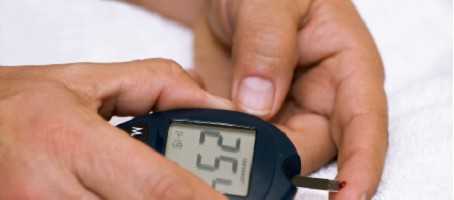TALK hypos is a new campaign which aims to increase awareness of hypos and spur better treatment and prevention of hypos in people with diabetes.
Hypoglycemia (low blood glucose levels) can be dangerous for people with diabetes on specific medication, namely insulin, sulphonylureas and glinides (prandial glucose regulators). If hypos are not treated quickly in people on these medications, blood glucose levels can drop to dangerously low levels called a severe hypo, requiring help from someone else and can require hospitalisation. Around 18% of hospital admissions for diabetes complications are as a result of severe hypoglycemia.
One of the problems that can lead to severe hypos developing is lack of awareness about the dangers of hypos. This can be a common problem if doctors that prescribe hypo causing medication do not adequately discuss the risks of hypos. Another problem is a condition called hypo unawareness which is when people are unable to recognise the early symptoms of hypos. A consequence of this is that severe hypos can occur without warning.
Loss of hypo awareness is likely to occur in people that are spending significant amounts of time in a state of low blood glucose level. Awareness of hypo symptoms can return if low blood glucose levels are avoided for several weeks.
The TALK hypos campaign, which is a collaboration between charity Diabetes UK and the pharmaceutical firm Novo Nordisk, encourages more communication between patients and doctors about hypoglycemia so that problems can be addressed and severe hypos can be prevented.
The TALK hypos have four areas of action for people with diabetes:
THINK: Do you know what a hypo is and whether you get hypos?
ASK: Ask your doctor or nurse about hypos as part of your reviews.
LEARN: Your doctor and nurse can advise you on spotting, treating and preventing hypos.
KEEP TRACK: Note your hypos down so that you can discuss them at your next review or appointment.
One of the problems for healthcare professionals is when hypos are not reported, under reporting of hypos is known to be a common problem which can occur for a number of reasons. These reasons include patients not knowing when or whether they are having hypos, patients believing their health team cannot help the problem and, in some cases, deliberate non-disclosure of hypos by patients over fear that their driving licence may be revoked. When hypos are not discussed, this can mean that problems with hypos only get worse which increases the risk that severe hypos will occur.
Simon O’Neill, Diabetes UK’s Director of Health Intelligence, states: “The first step is to help people with diabetes recognise the symptoms of hypos and better manage their condition by encouraging a regular discussion about them during consultations. We are pleased to be involved in a campaign which aims to do just that.”





